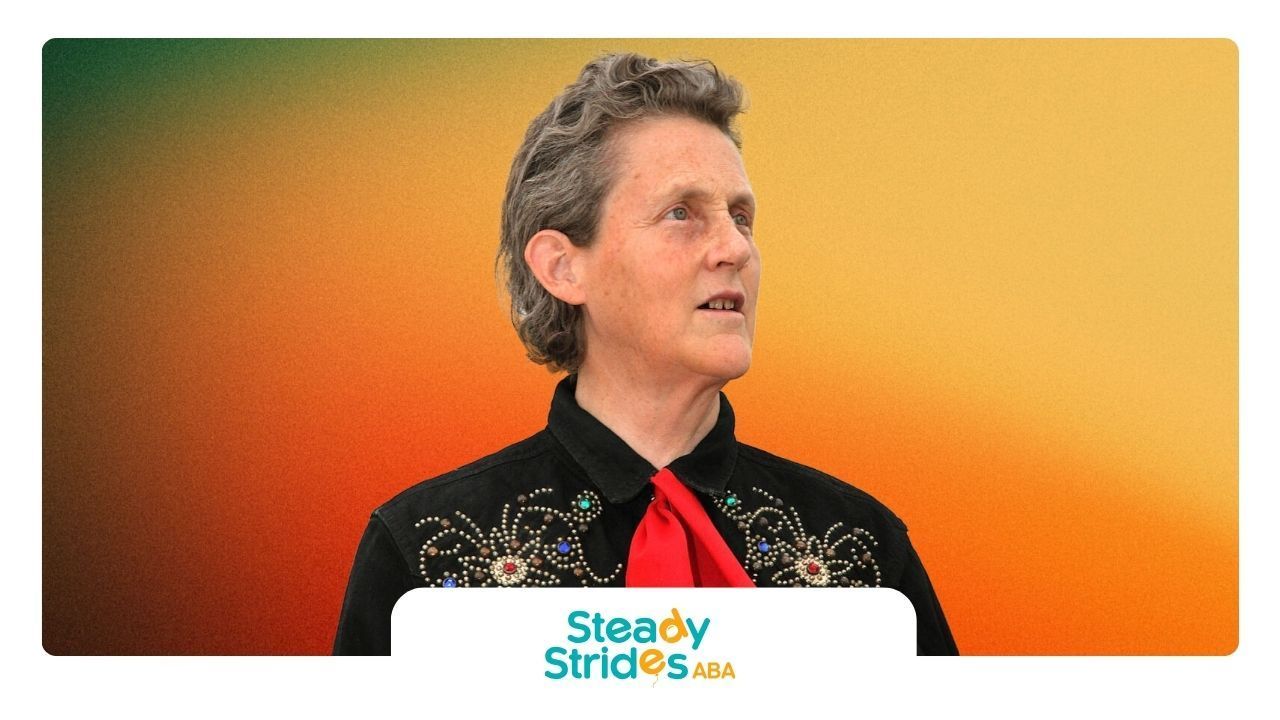In 2009, a quiet woman from a small Scottish village walked onto the stage of Britain’s Got Talent and stunned the world. Susan Boyle, then 47 years old, sang “I Dreamed a Dream” from Les Misérables and instantly became an international sensation. Her story was heartwarming, but few knew then that her journey was far more complex than anyone imagined.
Years later, Susan revealed she had been diagnosed with autism spectrum disorder (ASD), a condition that helped her better understand herself and her experiences growing up. In this blog, we’ll explore Susan Boyle’s life, how her autism diagnosis shaped her story, and what her journey means for broader autism awareness.
Who Is Susan Boyle?
Susan Boyle was born on April 1, 1961, in Blackburn, West Lothian, Scotland. The youngest of nine children, she lived a modest life. From a young age, Susan had a love for music and dreamed of becoming a professional singer. Despite her talent, she struggled with bullying, social isolation, and self-esteem issues, often being misunderstood by her peers and even her teachers.
For decades, Susan worked various jobs and cared for her aging mother, continuing to sing in local choirs and community events. It wasn’t until she auditioned for Britain’s Got Talent that she got her big break.
Her performance became a viral hit, attracting millions of views online and securing her a spot in the finals. While she didn’t win the competition, she went on to release multiple successful albums, earning international acclaim and recognition for her powerful voice and emotional performances.
Autism Diagnosis Later in Life
Susan Boyle’s life changed dramatically again in 2013—this time, not due to fame or music, but because of a medical diagnosis. At age 52, she was officially diagnosed with Asperger’s syndrome, a condition that is now classified under the broader term autism spectrum disorder (ASD).
For much of her life, Susan had been told she suffered from brain damage due to complications during birth. However, as she sought a second opinion from medical professionals, a more accurate and compassionate diagnosis was made: she was on the autism spectrum, with an above-average IQ.
This diagnosis came as both a surprise and a relief to Susan. In interviews, she described the experience as validating. For the first time, she had an explanation for many of the struggles and behaviors she had experienced throughout her life—difficulties with social interaction, sensory sensitivity, and heightened anxiety.
Why Susan Boyle’s Autism Story Matters
Susan Boyle's public disclosure of her autism diagnosis has had a profound impact on autism awareness for several reasons:
1. Shining a Light on Late Diagnoses
Most autism diagnoses occur in childhood, but many individuals, especially women, are diagnosed later in life. This is partly because autism presents differently in females and is often masked by coping strategies. Susan's story highlights the importance of recognizing autism across the lifespan and the need for greater awareness about how autism may manifest in adults.
2. Dispelling Myths About Autism and Talent
There is a common stereotype that individuals with autism struggle in all areas of life. Susan Boyle challenges that misconception. While she faces social and emotional difficulties, she also possesses extraordinary musical talent. Her story demonstrates that being on the autism spectrum does not preclude someone from achieving greatness. In fact, her unique way of processing the world may contribute to her exceptional ability to connect with music on a deep emotional level.
3. Increasing Representation
Representation matters. Seeing someone like Susan Boyle—who is open about her autism—succeed on a global stage is empowering for many individuals and families affected by autism. Her visibility encourages others to embrace their neurodiversity rather than feel ashamed or hidden.
Understanding Autism Spectrum Disorder
Autism spectrum disorder is a neurological and developmental condition that affects how individuals communicate, interact with others, and process information. It is called a "spectrum" because it presents differently in each person. Some may have profound challenges, while others, like Susan Boyle, may live independently and pursue successful careers.
Common Traits of Autism:
- Difficulty with social communication and interactions
- Restricted or repetitive behaviors
- Sensory sensitivities
- Preference for routines and predictability
- Strong focus on specific interests
Autism in Women:
Autism has historically been underdiagnosed in women and girls. Many females on the spectrum are skilled at masking or camouflaging their traits to fit in socially, which can delay diagnosis. Susan Boyle’s story is a perfect example of how these masking behaviors may lead to decades of misunderstanding.
The Emotional Impact of a Late Diagnosis
Receiving a diagnosis later in life can bring a mix of emotions. For Susan Boyle, it provided clarity and helped her make sense of her past. But it also came with grief—grief for the years spent misunderstood, for the lack of support, and for the opportunities missed.
Many adults who receive a late autism diagnosis report feeling:
- Validated: Finally understanding why they feel different
- Empowered: Gaining tools to advocate for their needs
- Frustrated: Regret about the lack of support earlier in life
- Hopeful: A renewed sense of direction for the future
Navigating Fame with Autism
Becoming famous overnight is overwhelming for anyone, but it can be particularly difficult for someone on the autism spectrum. The bright lights, constant interviews, social expectations, and lack of privacy can create intense sensory and emotional overload.
Susan Boyle experienced this firsthand. She had public meltdowns, struggled with anxiety, and took time away from the spotlight to recover. In interviews, she candidly discussed the pressure of sudden fame and how it affected her mental health.
With time, and with a greater understanding of her autism, Susan developed strategies to cope better. She now performs on her own terms and uses her platform to advocate for others facing similar challenges.
Lessons from Susan Boyle’s Journey
Susan Boyle’s story is more than a tale of a woman who beat the odds—it’s a story of understanding. Understanding oneself, one’s differences, and finding strength in authenticity. Here are some takeaways from her journey:
1. It’s Never Too Late for a Diagnosis
Understanding yourself is always valuable, no matter your age. A diagnosis can be a tool for self-compassion and growth.
2. Talent Comes in All Forms
Autism does not limit potential. Susan’s gift of music is a powerful reminder that brilliance can come in many forms, including neurodivergent ones.
3. Self-Awareness Leads to Self-Acceptance
For Susan, understanding her diagnosis helped her make peace with her past. It enabled her to advocate for herself, manage her anxiety, and lead a life that honors her unique needs.
What Parents and Adults Can Learn
Whether you’re a parent of a child on the autism spectrum or an adult questioning your own experiences, Susan Boyle’s story offers valuable insights. It encourages us to:
- Look beyond the surface
- Value neurodiversity
- Seek assessments when something feels off
- Foster environments that celebrate difference
It also serves as a reminder that while autism presents challenges, it also comes with unique strengths, perspectives, and potential for greatness.
Susan Boyle Today
Today, Susan Boyle continues to perform and inspire. She lives in the same house where she was raised and maintains a quiet life outside the stage. She uses her platform to speak about mental health, autism, and the importance of understanding and compassion.
Her story has helped reduce stigma, sparked meaningful conversations, and provided hope to countless individuals navigating life on the spectrum.
How Steady Strides Supports the Autism Community
At Steady Strides, we believe that every individual on the autism spectrum deserves support tailored to their unique strengths and needs—just like Susan Boyle. Through personalized Applied Behavior Analysis (ABA) therapy, we help children and families build skills, confidence, and brighter futures.
Whether you're seeking early intervention, behavior support, or parent training, we're here to walk the journey with you—one steady stride at a time.
Frequently Asked Questions
Was Susan Boyle diagnosed with autism?
Yes, Susan Boyle was diagnosed with Asperger’s syndrome (a form of autism spectrum disorder) in 2013 at the age of 52. This diagnosis helped her better understand her lifelong experiences with social challenges and anxiety.
How does autism affect Susan Boyle’s life and career?
Autism has impacted Susan’s social interactions and sensitivity to stress and sensory input, especially after becoming famous. However, her diagnosis has also helped her develop coping strategies and advocate for herself, enabling her to manage fame and continue performing.
Why is Susan Boyle’s story important for autism awareness?
Susan’s story brings visibility to late diagnoses and the diverse ways autism can present. Her success challenges stereotypes and promotes a more inclusive understanding of what it means to live with autism.
Sources:
- https://www.webmd.com/brain/autism/mental-health-aspergers-syndrome
- https://autism.org/average-or-high-iq-in-individuals-with-asd-may-be-higher-than-previously-estimated/
- https://pmc.ncbi.nlm.nih.gov/articles/PMC2677582/
- https://news.ucsc.edu/2022/06/representation-for-autistic-adults.html
- https://www.autismspeaks.org/sensory-issues
- https://pmc.ncbi.nlm.nih.gov/articles/PMC10060524/













